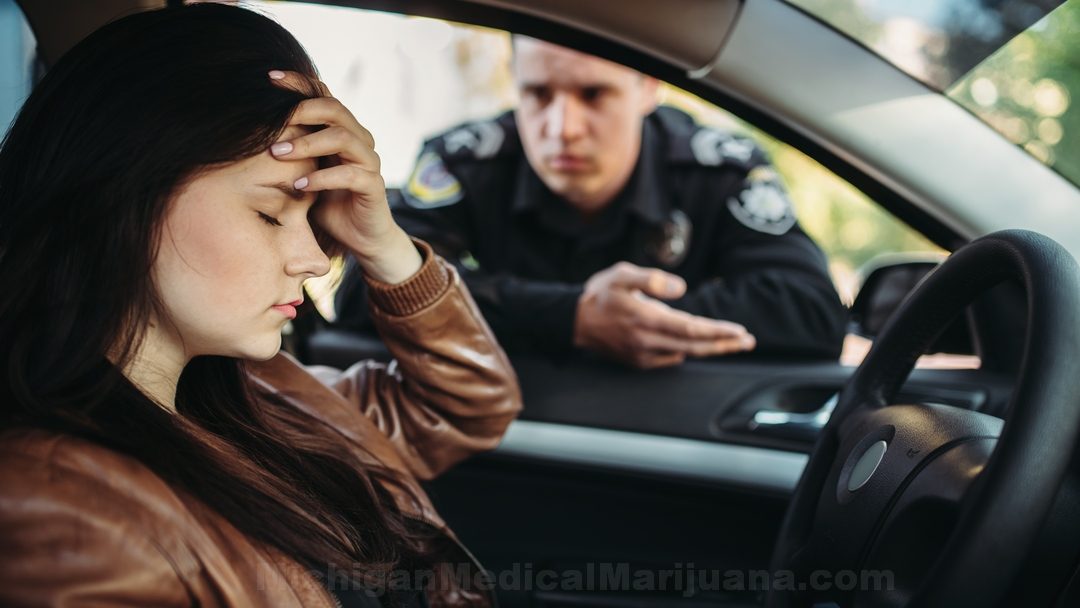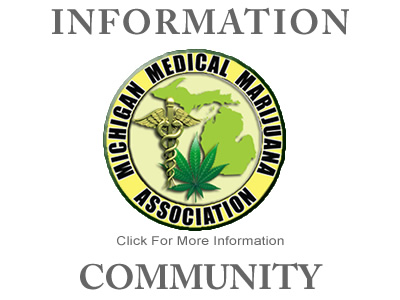
Sep 11, 2018 | Blog, Criminal Defense
An interesting read about a 5 year trend (2013-2017) accident and crash trends for drivers who admitted they were using cellphone. There is a link toward the bottom of the page to the PDF which has some detailed statistics with a pretty picture. But you’ll read most of it here.
Michigan Traffic Crash Facts
Cell phone use can be a distraction for the driver, the bicyclist, and the pedestrian. Cell phone use in crashes is measured by reported use, which is recorded by the police officer at the scene of the crash.
2017 Traffic Crash Data
A total of 3,099 crashes occurred in Michigan where a motor vehicle driver, pedestrian, or bicyclist was using a cell phone. Twenty-one of those crashes involved a fatality.
A total of 3,076 motor vehicle drivers, 25 pedestrians, and nine bicyclists were reported to be using cell phones in the 3,099 crashes.
Of the 25 pedestrians using a cell phone, three pedestrians were killed, six suffered a suspected serious injury, ten suffered a suspected minor injury, and five suffered a possible injury.
Of the 3,076 motor vehicle drivers using cell phones, 618 (20.1%) were 20 years of age or younger.
There were 1,490 (48.1%) rear-end crashes where a driver was using a cell phone.
Charged with distracted driving or driving under the influence of marijuana or alcohol? Contact Komorn Law for a free case evaluation 800-656-3557.
Of the total 3,099 crashes involving cell phone use, 609 (19.7%) also involved a lane departure.
Of the total 3,099 crashes involving cell phone use, 1,236 (39.9%) were intersection related.
There were 3,076 motor vehicle drivers using a cell phone in crashes: 2,713 passenger cars, 292 pickup trucks, 28 trucks or buses over 10,000 lbs., 11 small trucks under 10,000 lbs., ten vans or motorhomes, one motorcycle, four vehicle types coded as “other,” and 17 uncoded and errors.
*In 2016, the data field measuring cell phone use was changed to include multiple distraction elements. Increases in the number of cell phone crashes in 2016 and future years may be the result of the police report change.
See a Detailed Stats Report on Drivers Tested Positive for Cannabinoid Drugs
Michigan Traffic Crash Facts (Main Website)
About Komorn Law
Komorn Law has represented numerous clients through the legal chaos of starting up a business in the Michigan Medical Marihuana Industry.
If you or someone you know is facing charges as a result of Medical Marijuana, DUI, Drugs, Forfeiture, Criminal Enterprise, etc. Please contact our office and ensure you’re defended by an experienced lawyer in the evolving laws.
Lead attorney Michael Komorn is recognized as an expert on the Michigan Medical Marihuana Act. He is the President of the Michigan Medical Marijuana Association (MMMA), a nonprofit patient advocacy group which advocates for the rights of medical marijuana patients and their caregivers.
Contact us for a free no-obligation case evaluation
800-656-3557.
Follow Komorn Law

Sep 11, 2018 | Blog, Criminal Defense
An interesting read about a 5 year trend (2013-2017) accident and crash trends for drivers who tested positive for cannabinoid drug. There is a link toward the bottom of the page to the PDF which has very detailed statistics.
Michigan State Police (MSP)
Drivers Tested Positive for Cannabinoid Drugs
(Delta 9, Hashish Oil, Hashish, Marijuana/Marihuana, Marinol, Tetrahydrocannabinols, THC, or Cannabinoid, type unknown)
2017 Traffic Crash Data
There were 174 drivers who tested positive for cannabinoid drug use involved in 169 motor vehicle crashes. Of those crashes, 131 were classified as fatal, resulting in 144 fatalities. An additional 156 persons were injured.
The highest number of motor vehicle crashes with drivers who tested positive for cannabinoid drug use (19) occurred in April and May, and the highest number of fatal crashes (17)and persons killed (19) occurred in May.
Charged with driving under the influence of marijuana or alcohol?
Contact Komorn Law for a free case evaluation 800-656-3557.
Michigan driver statistics indicate 6.5 percent of licensed drivers who tested positive for using cannabinoid drugs were age 16-20, and 16.7 percent of drivers who tested positive for using cannabinoid drugs in crashes were also in that age group.
See the entire PDF report here which has very detailed breakdowns. It’s a really good breakdown except I did not note where they said who was at fault.
Michigan Traffic Crash Facts (Main Website)
About Komorn Law
Komorn Law has represented numerous clients through the legal chaos of starting up a business in the Michigan Medical Marihuana Industry.
If you or someone you know is facing charges as a result of Medical Marijuana, DUI, Drugs, Forfeiture, Criminal Enterprise, etc. Please contact our office and ensure you’re defended by an experienced lawyer in the evolving laws.
Lead attorney Michael Komorn is recognized as an expert on the Michigan Medical Marihuana Act. He is the President of the Michigan Medical Marijuana Association (MMMA), a nonprofit patient advocacy group which advocates for the rights of medical marijuana patients and their caregivers.
Contact us for a free no-obligation case evaluation
800-656-3557.
Follow Komorn Law

Jul 29, 2016 | Blog, Komorn Law Blog, Marijuana Criminal Defense Attorney Michael Komorn
FARMINGTON- A pilot program allowing the Michigan State Police and special Drug Recognition Experts to administer a roadside test to detect the presence of THC in a person’s saliva was approved in Michigan. Although the bill creating this program was passed by both House and Senate, it had to overcome stiff resistance to do so. A previous effort to curtail legislation like this was defeated in the House during the 2013-2014 legislative session due to pressure from activists (including this author), attorneys and lawmakers.
Rep. Jeff Irwin (D-Ann Arbor) was a member of the Committees that heard the bills in the House in both the previous and current sessions. He joined the staff of the Planet Green Trees Radio Show (PGT) on June 23 to discuss the passage of this bill, among other things (see OTHER ARTICLE WITH LINK).

Listen to the entire interview at:
http://www.blogtalkradio.com/planetgreentrees/2016/06/17/pgt-304-broken-boy-soldier
PGT is hosted by Farmington attorney Michael Komorn, who asked the Representative to fill in the details. “I know it passed. I know it’s not based on science or logic… it’s based on ‘The Earth Is Flat’ principles.
“You spoke out about it,” Komorn said to the Representative. “Who were the agencies lobbying for that?”
“That was primarily law enforcement, the prosecutors, you know, the same network of groups that were pushing for this are the same ones who are pushing against the medical marijuana bills,” Rep. Irwin replied. “There even seemed to be some talk that, hey, the Senate’s going to move the dispensary and the edibles bills and the House is going to move these Senate bills for them that provide these roadside saliva tests… there was a linkage between those bills…” The two bills are HB 4209 and HB 4210, which were stalled in the Senate Judiciary Committee until recently and are dormant until after the legislature’s summer recess.
“You know that I oppose (the tests). The amazing thing to me is… the Detroit News Editorial Board came out very strongly against these tests, arguing along the same lines as many of us who oppose them… I was quite shocked to see the Detroit News take opposition to the bills.” The News is a widely-read, generally conservative newspaper who typically support Republican platforms.
During Committee testimony, the MSP representatives did provide some details of the program. “The bill provides for this pilot to be rolled out in five counties, and then later in another five counties if they decide to do that,” the Representative explained.
“They said they were going to pick a mix of rural, urban and suburban locales to try to make sure they were getting a look at something that was more representative. They did not have anything in the legislation that would define anything that would look like success, in the context of a pilot, which would then be used to determine whether or not they should roll it out into another five counties or not. That was a real weakness in the approach.”
The roadside pilot would require participation by citizens, under penalty of a civil infraction ticket for refusing to comply. “We’ll see how those pilots roll out; we’ll see how the courts handle the constitutionality of even those civil infractions that might be issued to individuals who might refuse a test of questionable validity. We’ll see where it goes.”
“There is no magic number; these tests- what are they proving?” Komorn asked. “What are they showing- just the presence of (THC)? They are not giving a number.”
In truth, the reporting from the tests may be a simple yes or no to the presence of THC. Or it may be a number. We don’t know, because the MSP have not selected a test yet. There are a variety of products on the market, each with their pros and cons, each with different tolerances. Some test well for some things and not so well for others.
The methodology of the testing procedure itself was explained by Rep. Irwin as an extremely subjective process. “What they are hoping to prove is that, these tests work. They are hoping to prove that the tests work by administering the roadside swab, obtaining the result and then having the drug recognition expert, this officer that’s been trained with this particular flavor of training, will also be there to provide their that assessment which they are hoping will line up with the results from the test to demonstrate yes, since our drug recognition expert says this person was impaired and this test produced a result of X or Y, therefore we know that the result of X or Y is going to line up with impairment.”
“The problem is, this is not a proper test with a double-blind setup that you would use to test the quality of, say, a drug or something, like by the FDA.”
Administration of the test also raises issues of impartiality. During a roadside sobriety check, a DRE officer will supposedly wait until they have obtained the swab results before electing to charge the driver with a crime. “If the swab is administered and it says the person has five units of cannabis, or five units of opioids, on their oral swab, the Drug Recognition Expert is going to know that and is going to be influenced by that when they make their determination of is or is not impaired,” Rep. Irwin told the PGT audience.
“We all know how powerful suggestion is in humans, and we know that what’s going to happen is that these drug recognition experts are going to agree with these test results, at least that is what I suspect is going to happen, and they are going to try to use that to bootstrap it into a result that, hey, these tests are worth relying upon.”
The influence of the test on the trooper’s decision regarding a driver’s level of impairment could play into the prosecution and defense of any cases of intoxicated driving arising from these ‘pilot program stops.’ “I think there are groups like the criminal defense attorneys who are going to be looking at this and they are going to watch the process over and try to find ways to use the data developed by the pilot to reach a different conclusion.”
During some dialog with PGT on-air regular Jim Powers, myself and Komorn, Rep. Irwin revealed that the legislators were told that the pilot program swab analysis machines could quantify the amount of cannabis in your saliva- delivering a number or score similar to the way a breath test for alcohol works- and that it did not detect the inactive metabolites that linger in a person’s body for days after consumption.
“Is there any data or evidence that they are submitting in terms of the severity of accidents because of marijuana driving or patient drivers?” Komorn asked.
“No, and I asked questions in Committee about what evidence they had about impairment levels of all the various substances that these little swabs apparently can detect… they really weren’t able to give any answers for any of those questions,” Rep. Irwin complained. “They basically just said, ‘Hey, look, this thing what it does is it’ll tell ya how much of various substances are in a person’s saliva. Whether or not they are impaired, that’s not our expertise.”
In a roadside stop, the decision on impairment rests with the officer; in the case of the pilot program all the officers administering the roadside saliva test will be Drug Recognition Experts.
MSP testimony revealed that the testing company had not yet been chosen, per Rep. Irwin, which raised additional issues of credibility. In a market full of new start-up companies working with emergent technology, not every company has the same standard nor are their tests equally proficient at detecting substances.
“They are going to do a whole RFP process that is going to be open to anyone to apply. There was one company that showed up at the hearing and gave out brochures for their equipment.”
In deciding which counties might qualify for the pilot program, Rep. Irwin speculated on what was laid out to the lawmakers in Committee. “What they are going to do is they are going to roll this out by lining up these machines and/or testing sticks with deployment of the relatively small number of drug recognition experts in Michigan and do that within those counties. I think it will be somewhat determined by where their deployment is currently of those troopers are in terms of which posts they are working out of… I really have no idea.”
“Without a specific designee, it’s almost impossible for them to make a credible statement about what the tests will and will not accomplish or what it will and will not test for,” I added.
The Representative agreed. “In committee they were saying they were going to try and pick something that would test for a wide variety of substances. I kept trying to ask questions about, well, what is it you are trying to catch because from my understanding these different companies have products that are more or less good at identifying different substances. So, what is it you’re looking for?”
In researching a company that Rep. Irwin mentioned by name as vying for the saliva test, PGT staffers found an interesting connection. “We can’t confirm it, but the company that was mentioned… is a company that owns private prisons,” Komorn observed at the end of the show.
In describing the businesses that service the police industry as the “correctional market,” Komorn observed that, “‘The more laws we make, the more people get violated of it.’ That’s their pitch. It’s sickening.”
“Some of us remember back in 2012, when this issue first came up,” I reminded listeners. “The Michigan State Police said, ‘We went to this convention in California and this guy told us this great story about this wonderful machine and we want to bring it in for a pilot program.’ And that’s how they described discovering this whole process- they went to a cop convention in California and a slick salesperson sold them on the whole process, and they’ve been pushing it ever since. That’s my recollection of the origin of this entire issue.”
“They have yet to provide a causal link between marijuana and driving, as the AAA report illustrated,” said Powers.

Rick Thompson
Rick Thompson
CANNABIS MEDIA SPECIALIST
Named Citizen Activist of the Year 2015 by national media source
Print: High Times, Hybrid:Life Magazine, Culture Magazine, more
Internet: Editor, The Compassion Chronicles; contributor, The Weed Blog, more
Radio: The Planet Green Trees Radio Show, more
Activism: Michigan ASA, MiNORML and MiLegalize, Board member of all three
4mrick@gmail.com
Safer Michigan Coalition















